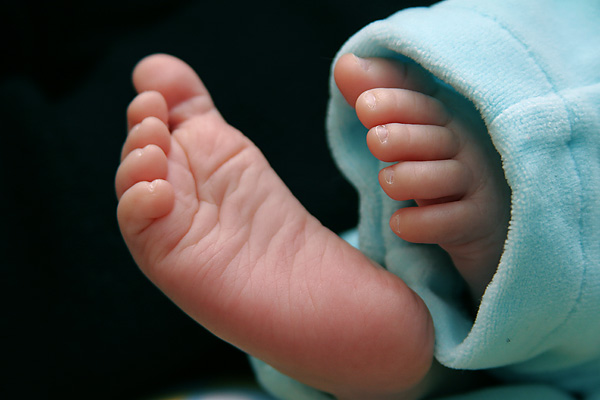You've probably heard of BPA, the chemical that was in baby bottles, sippy cups, and water bottles. There's been lots of concern about this chemical as an endocrine disruptor-- it's ability to alter hormones, causing all sorts of health problems, such as obesity, cancer, heart disease, early puberty and learning disabilities. Back in 2008, consumers learned about the problems of BPA and demanded that companies remove it from products for children. Most did, and in 2012 the FDA banned BPA in baby bottles and sippy cups.
Flash forward to 2014, and we have many BPA free plastics for sale and widely used in bottles and toddler cups. But last week, Mother Jones wrote an extensive piece about the health problems associated with BPA free plastics-- in fact, all plastics-- that leach hormone disrupting chemicals.
According to Environmental Working Group, Endocrine disruptors are compounds that can interfere with the way our hormones work– and hormones control fetal development, puberty, and metabolism. Chemicals that interfere with these processes may be risky. Hormone disruption has been linked to early puberty, heart disease, cancer, reproductive problems, obesity, and interference with cancer treatments. According to the Mother Jones article, the list is even longer:
“Scientists have tied BPA to ailments including asthma, cancer, infertility, low sperm count, genital deformity, heart disease, liver problems, and ADHD. “Pick a disease, literally pick a disease,” says Frederick vom Saal, a biology professor at the University of Missouri-Columbia who studies BPA.”
So it makes sense to avoid them-- and work for the reform of our dysfunctional chemical laws that got us in the situation to begin with.
Here are 6 ways to do just that, based on our work on Non-Toxic Kids and the EWG's new dirty dozen list of hormone disruptors.
1. Use stainless steel or glass for baby bottles, sippy cups, and water bottles. There are many great choices out there now. I used glass bottles with both my girls and never had any trouble with breakage or cracks. Now, my girls use small glass bottles with silicone sleeves for school lunches. They used small stainless steel sippy cups when they were in toddlers and in PreK.
2. Ditch canned food-- go for fresh or frozen instead. BPA is still used in the lining of most canned foods. Avoiding canned foods is a good way to lower exposure to BPA for your whole family.
3. Filter your water. Our friends at EWG highlighted a couple chemicals that pollute our drinking water and are endocrine disruptors. These can be avoided by filtering your water. See this post from EWG for more information about 12 hormone altering chemicals and where to find water filters that will reduce exposure to endocrine disruptors.
4. Buy and use a vacuum cleaner with a HEPA filter. When I did my body burden test-- I had high levels of the flame retardant Deca. This and other flame retardants are endocrine disruptors. Most of our furniture contains these chemicals, but a vacuum cleaner with a HEPA filter will pick up more of the toxic dust and lessen exposures.
5. Ditch the non-stick pans and water resistant coatings on clothes, furniture and carpets. These contain PFCs, and according to EWG, " Perfluorochemicals are so widespread and extraordinarily persistent that 99 percent of Americans have these chemicals in their bodies." and they are linked to "decreased sperm quality, low birth weight, kidney disease, thyroid disease and high cholesterol, among other health issues." Use stainless steel or cast iron instead.
6. Eat as much organic produce as possible, at least the (original) Dirty Dozen. A certain class of chemicals used as a pesticide in farming--organophosphate pesticides-- has been linked to effects on brain development, behavior and fertility, as well as "interfering with the way testosterone communicates with cells, lowering testosterone and altering thyroid hormone levels," according to EWG. Limit exposure to pesticides in produce by eating organic fruits and vegetables whenever possible.
Environmental Working Group shares more ways to limit exposure to hormone disrupting chemicals and more information. Most importantly-- to protect all kids and families everywhere, we need strong laws so that products must be proven safe before they are sold in stores. Right now, people assume that products are safe and that someone, somewhere has tested them for safety.
This is far from the truth. Let' s make choices to protect our families now, and work for changing our system to better protect families well into the future.



The views and opinions expressed in this post are those of the author(s) and do not necessarily reflect those of MomsRising.org.
MomsRising.org strongly encourages our readers to post comments in response to blog posts. We value diversity of opinions and perspectives. Our goals for this space are to be educational, thought-provoking, and respectful. So we actively moderate comments and we reserve the right to edit or remove comments that undermine these goals. Thanks!